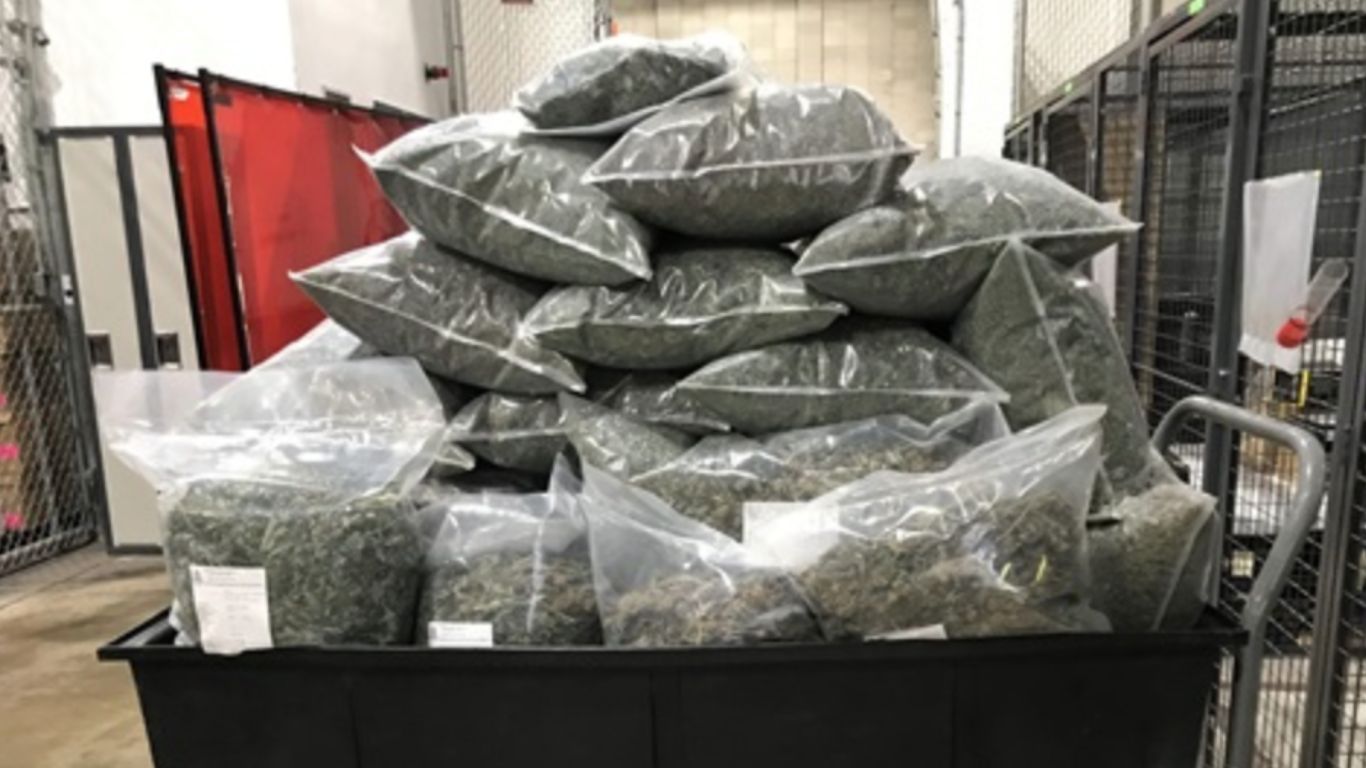
FINTRAC, the Financial Transactions and Reports Analysis Centre of Canada, says they have uncovered numerous instances of money laundering efforts related to illicit cannabis operators, especially from illicit online stores.
In a report released today, FINTRAC says they analyzed a sample of approximately 5,000 suspicious transaction reports (STRs) related to illicit cannabis activities, received from March 2020 to March 2021.
The majority of these reports involved the “suspected sale and distribution of illicit cannabis by way of unlicensed online dispensaries”. In addition, FINTRAC also identified STRs concerning “the suspected production of illicit cannabis”.
A range of businesses were identified as being used as money-laundering fronts for these illicit cannabis operations. The most commonly-observed operations included e-commerce businesses in the beauty and wellness industry, food and beverage wholesalers, automotive-related businesses, electronics repair businesses, marketing, advertising and consulting, and construction-related businesses.
Email money transfers (EMTs), cheques, bank drafts, and cash deposits and/or withdrawals were the primary methods identified in the report that these illicit businesses used to move funds derived from illicit cannabis activities into their front businesses.
FINTRAC also observed several money-laundering (ML) methodologies, including the use of virtual currencies, nominees’ front companies owned by the distributors and producers of illicit cannabis, and the layering of funds between related accounts.
FINTRAC’s report also noted that the incoming fund transfers from virtual currency dealers into bank accounts were found to make reference to cannabis-related terminology (e.g., “weed”, “pot”, “bud”, “leaf”).
In one example of how businesses are used to launder those funds, an online unlicensed cannabis dispensary would have customers send EMTs to the attention of different business email addresses or phone numbers. Funds are then accepted into a bank account to which different email addresses and/or phone numbers are associated.
The accounts of suspected online unlicensed dispensaries also often had significant purchases at packaging and mail service businesses, potentially for the shipment of product to clients, such as the wholesale purchase of humidity-controlled packaging from specialty suppliers or food packaging retailers. These kinds of purchases were also observed in accounts of suspected illicit cannabis producers.
Although illicit online cannabis stores were the most commonly-identified cannabis-related accounts and money-laundering efforts, many noted transactions were also suspected of being related to the cultivation, processing and preparation of illicit cannabis.
FINTRAC notes that one way they can identify potentially illicit cannabis-related activities is “excessive and atypical utility bill payments” that were suspected of reflecting unlicensed cannabis grow operations. FINTRAC says they observed utility payments funded by cash made in the exact amount of the utility bill or a rounded dollar amount.
“Other atypical utility bill payments observed include an individual making bill payments to multiple hydro accounts, having multiple individuals making payments to one hydro account, and utility bills that are above the expected amount for the clients given occupation and listed address” notes the report.
These utility payments were then often also combined with large purchases conducted at businesses selling goods known to be used by the cannabis industry such as hydroponics stores, garden stores, hardware stores, and lighting stores.
Large purchases towards candy stores and/or kitchenware stores outside of the expected business activity of the client also may suggest the individual may be involved in producing illicit cannabis edible goods.
FINTRAC hopes to have any financial institutions who notice the various signs of potential money laundering from these types of businesses to utilize “Project Legion”, a public-private partnership initiative led by Toronto-Dominion Bank (TD) and supported by Canadian law enforcement agencies and FINTRAC.
Project Legion targets illicit cannabis activities by focusing on the money laundering aspect of the crime. The objective of the project is to improve awareness of the crime and to improve the detection of the laundering of proceeds from illicit cannabis.
Featured image of cannabis seized in a recent police operation in Edmonton related to illicit online sellers.

































